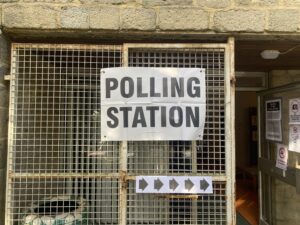Local councils given duty to house domestic abuse survivors

Domestic abuse banners at Pride in London in 2013. Credit: Tom Morris
The government has announced new measures designed to offer greater levels of housing support to survivors of domestic abuse.
Local councils will soon be legally required to offer tailored accommodation-based services to domestic abuse victims and their children, the MHCLG said.
A consultation has now opened on the measures, which are hoped will offer a more consistent approach to domestic abuse services across the country.
The communities secretary James Brokenshire said: ‘Domestic abuse destroys lives and I am determined to drive the change necessary to ensure families never have to endure the pain of domestic abuse in silence.
‘For the first time ever, local authorities will have to legally assess level of support needed in their local area and match that need with vital, life-saving services – helping untold numbers of families to safely rebuild their lives, free from the threat of pernicious abuse.
‘These important measures will help us shape the future of the invaluable support survivors of domestic abuse and their children receive.’
Many local authorities already provide support to domestic abuse victims, but it is hoped that the measures will end the variation in support that they receive depending on where they live.
Under the proposals, local councils will need to develop and publish detailed strategies setting out the range of domestic abuse services they will provide to survivors and their children, including refuge accommodation and specialist support.
Authorities will also be required to work with neighbouring councils to ensure that services reflect local people’s needs, including specialist support for BAME, LGBT and gypsy survivors.
The government has said that it will consult on how much funding it needs to provide in order to make services long-term and sustainable.
The proposals come after ministers awarded £22m to domestic abuse projects across the country in November last year.
Domestic abuse and women’s charities have praised the government’s announcement, saying it will help secure refuge places for the foreseeable future.
Sandra Horley, CBE, chief executive of Refuge, said: ‘This has the potential to end the postcode lottery for refuge places and could put these life-saving services on a secure financial footing for the first time.’
‘It could provide vital protection to tens of thousands of women and children who experience violence and intimidation in the home.’
While welcoming the decision, the Housing, Communities and Local Government Committee warned the proposals must be matched with funding if they are to be successful.
Clive Betts MP, chair of the committee, said: ‘Simply placing a new obligation on local authorities will not be enough without adequate funding.
‘If it results in further financial pressures on front-line services, and reduces the ability to fund preventative programmes, then it will not be as effective as it should be.’
In a recent report, the HCLG Committee called for dedicated government funding to support a national network of refuges for women and children, separate from other forms of social housing.















